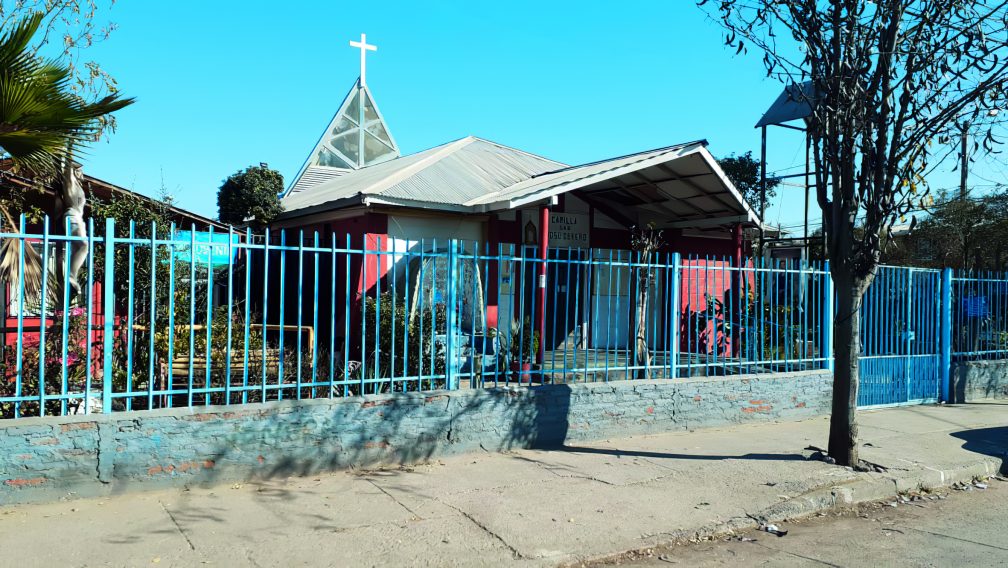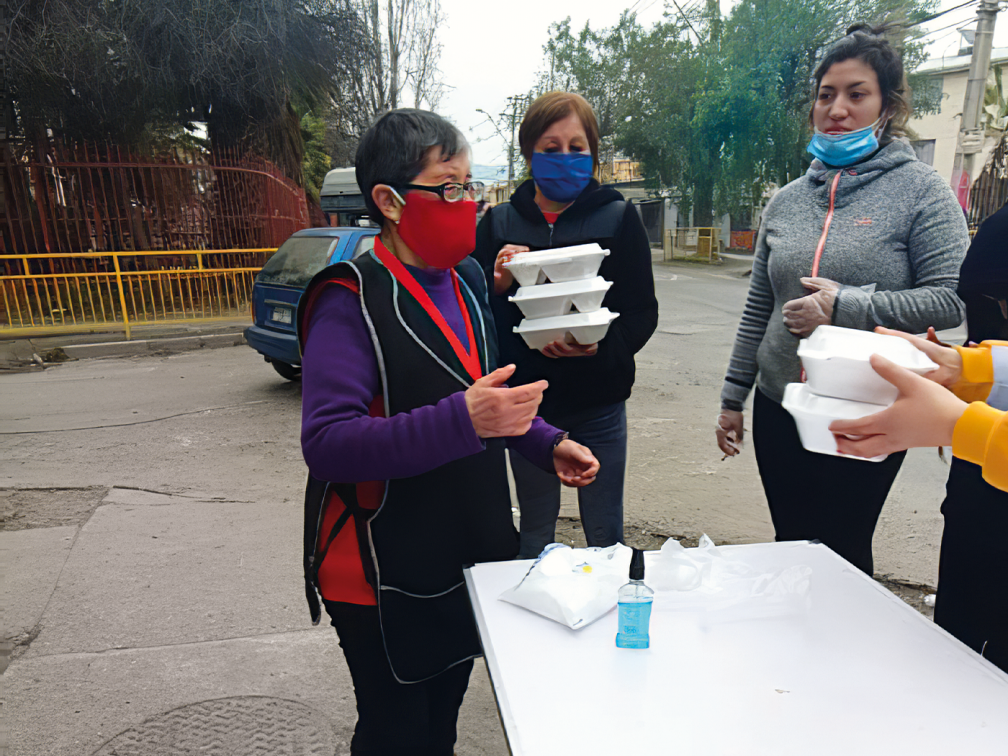The Coronavirus pandemic crept up on us like a lion through tall grass. Nobody saw it coming and we could not have foreseen the changes it would make to our lives.
I had arrived in the parish of Saint Matthias in the middle of March and was just beginning to get to know the parishioners and familiarise myself with the layout of this poor suburb of Bajos de Mena in Puente Alto when first curfew, and then a hard lockdown, were imposed on us all.
Being in quarantine meant we couldn’t celebrate mass nor any of the Sacraments except in very limited circumstances. As well as this, all catechetical programmes and missionary outreach were effectively halted while the Chilean Government tried to control the spread of the Coronavirus pandemic. As the number of Coronavirus cases spiralled throughout Chile, Puente Alto was identified as the municipality in Chile with the highest number of cases. Hopes for a quick end to our quarantine faded, though nobody imagined that we would still be in lockdown six months later!
Both Fr. John Greene from Dublin, the parish priest of Saint Matthias, and I were obliged to curtail all pastoral activity in these early stages of lockdown though we did try to explore how we might continue celebrating masses in some of the chapels in a limited way. In the end, even this was not feasible. We had to resign ourselves to being housebound.
In my own case, this feeling of being useless was exacerbated by the fact that I had damaged my left knee climbing up a steep slope to get closer to the foot of a glacier on a trip down to the South of Chile in January. When the knee specialist recommended that I rest my injured knee for a period of three to six months to cure it I gasped in shock. How was I going to bear such a long period of forced inactivity?
Just when we were feeling pastorally incapable of responding to our people’s needs, the parish came to life in an unforeseen way. As the lockdown dragged on, our concerned parishioners began to take action when they realised that many families in the poorer parts of the parish were going hungry. Feeding the hungry soon became a major priority. Firstly, everyone involved had to get a special pass from the police to be able to work in any of the seven soup kitchens which fed 700 people daily across the parish. Next pastoral agents, who were normally catechists or committed parishioners, not only found themselves helping in the soup kitchens but were urged to visit their neighbours to find out who might be going hungry.
Help in the form of food parcels began to arrive in the parish through the auspices of Caritas and the Archdiocese of Santiago. Good-hearted donors like Columban Fr Michael Hoban in the USA and the Columban Lay Supporters in Chile also helped with money and extra food parcels. Fr John soon found himself being called upon to collect copious boxes of foodstuffs destined for the hungry that were channelled through the local episcopal vicar of Maipo, Fr. Rodrigo.
The coordinators of the nine chapels in the parish were charged with the responsibility of giving Fr. John a list of the names of needy families so that help could be directed to those most in need. With the help of an enthusiastic couple called Luis and Maggie, Fr. John was able to redirect countless food parcels and boxes to the different chapels for the needy.
What has been the effect of all this effort on the lives of our lay people here the parish of Saint Matthias in Bajos de Mena? Jessica, a committed parishioner in the chapel of Saint Joseph the Worker, spoke of her joy in being able to give to those in need. She explained how she felt: “I just feel so happy meeting people whom we don’t normally see coming to our chapel and seeing them learn that through us Jesus is at work among them.”
Another parishioner called Sonia who belongs to the community of Saint Andrew Kim relates her experience of serving the hungry in the chapel’s soup kitchen. “At first they all came in sheepishly, embarrassed for having to come because they couldn’t feed themselves. However, little by little, as we got to know each other they have come alive and now we’re the best of friends.”
In my own case, I am still limited in what I can do to help because of my injured knee. However, it is obvious to me that God allowed our seeming uselessness to open the door for the lay people to take action in the parish in a way neither Fr. John nor I could have anticipated before the Coronavirus pandemic began.


